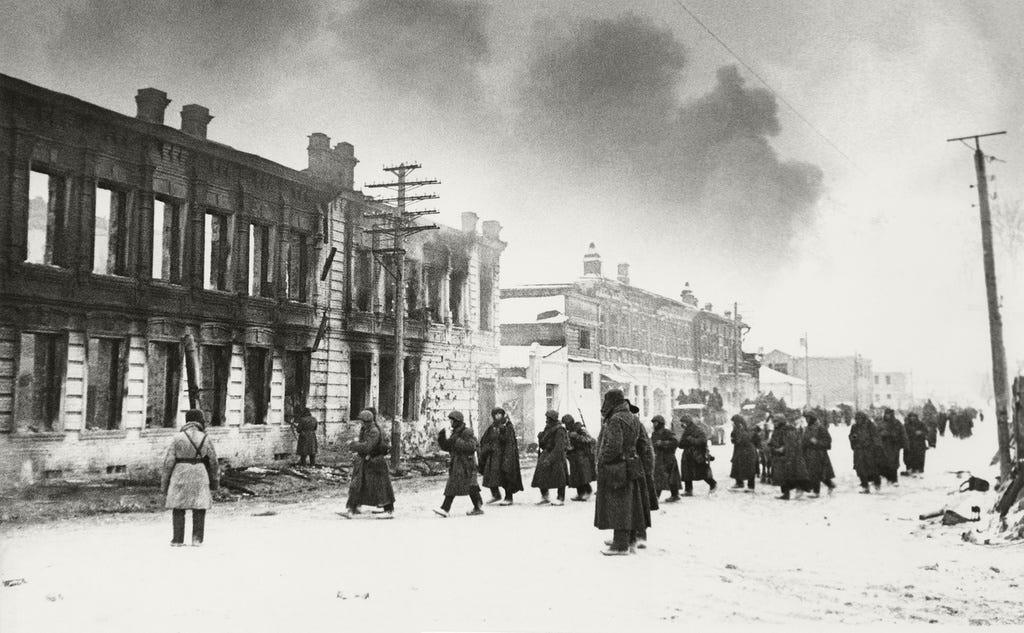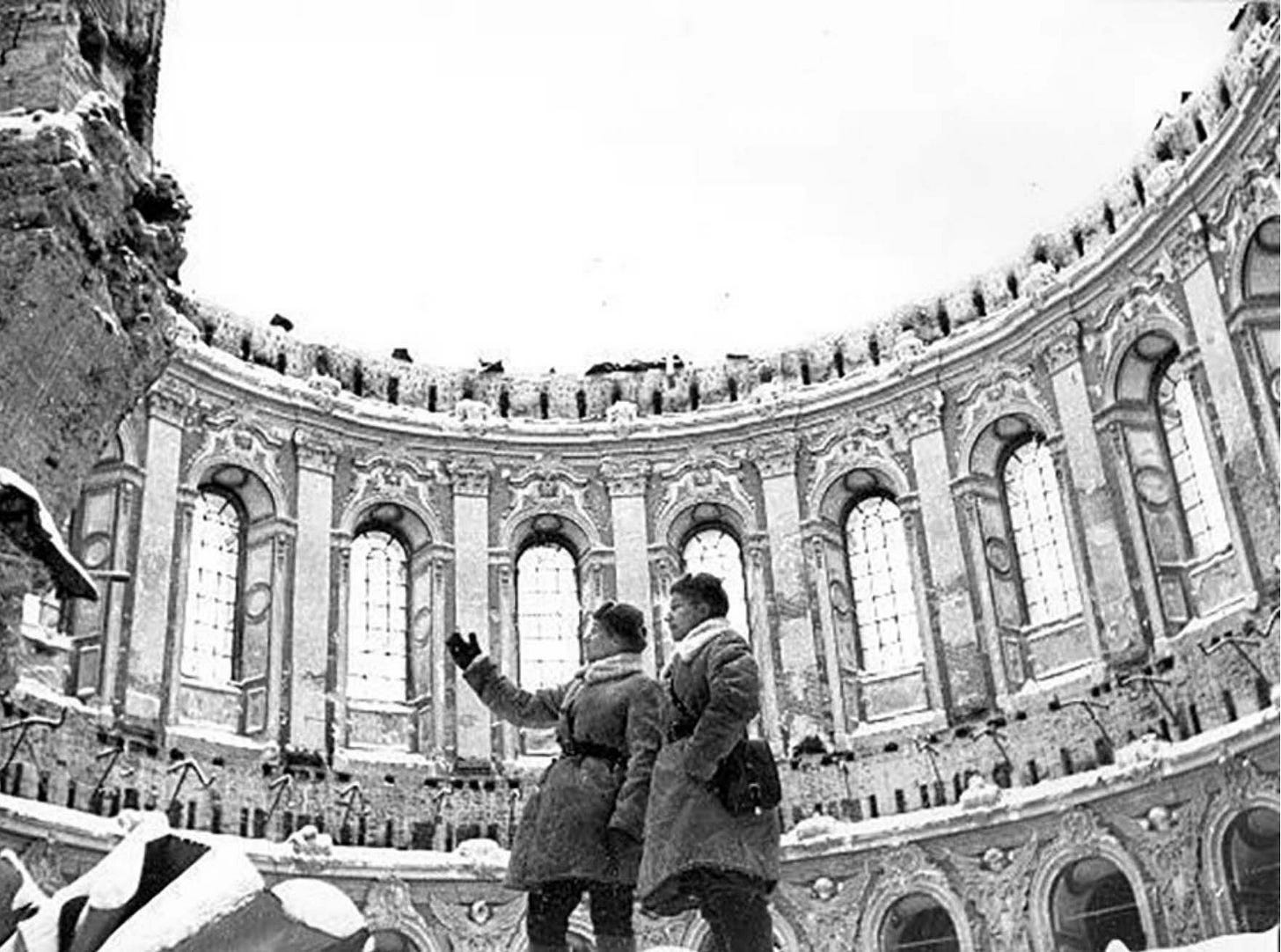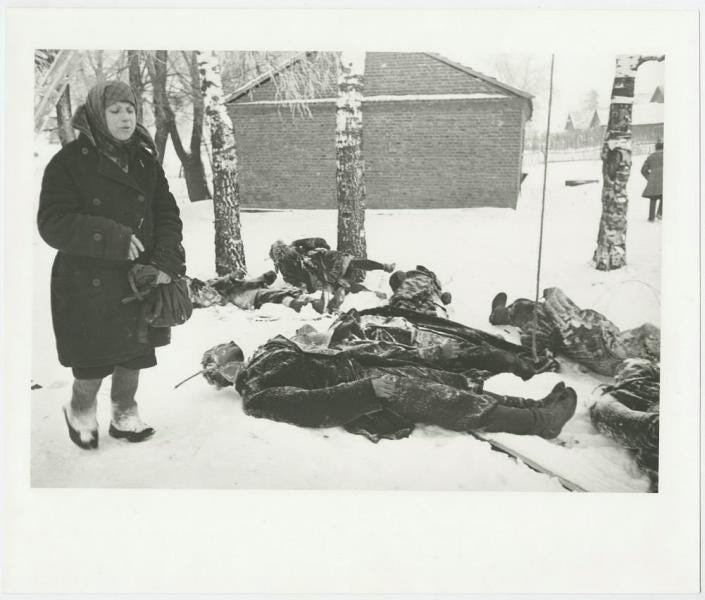Russian anger grows at Nazi crimes
29th December 1941: The Red Army recovers territory outside Moscow and find evidence of recent atrocities
The German attack on Moscow had failed by mid December. The Red Army suddenly found themselves pushing back and retaking large areas that had fallen in the previous two months. There was relief that Moscow was no longer threatened but there was also cold anger when they discovered the reality of the German occupation.
Alexander Werth1 was a British journalist based in Moscow:
The hatred of the Germans had, if anything, grown since the Battle of Moscow. In recapturing numerous towns and many hundreds of villages, the Russian soldiers got their first first-hand experience of the “New Order”.

Everywhere the Germans had destroyed whatever they could; all but three houses had been burned down at Istra [a substantial town 40 miles southwest of Moscow] , for instance, where they had also blown up the ancient New Jerusalem Monastery.






